|
Fasten your seatbelts: we’re venturing into that messy, murky place where racism and sexism clash with individual choice and cultural significance; where the personal and the political are inextricably intertwined; where triggers are activated and views will collide. The disclaimers:
In other words, it might raise questions about individuals who, while they certainly have every right to be with whomever they choose on the personal level, have made choices that cause us to assess these actions through a broader political and cultural lens. Current case study: actor/activist Jesse Williams who, almost a year after rocking America with his swoon-worthy sound bites about Black pride and resistance, is in the headlines for recently announcing a breakup with Aryn Drake-Lee. WEST HOLLYWOOD, CA – JUNE 08: Actor Jesse Williams (R) and Aryn Drake-Lee attend the “GQ, Nautica, and Oceana World Oceans Day Party” at Sunset Tower on June 8, 2010 in West Hollywood, California. (Photo by John Shearer/Getty Images for GQ Magazine) She is his wife of four years, mother of their two toddlers, the natural-hair-wearing Black woman real estate broker who’s been with him since he was a teacher of African History and Diasporic Studies. Jesse Williams and actress Minka Kelly Since splitting with Aryn, Jesse is said to be dating actress Minka Kelly, who is White. So………on one level, hearing about a celeb divorcing the spouse who traveled the road to fame with them isn’t that newsworthy. And rumors that Hollywood was whispering in Jesse’s ear that he could pull a star more big-screen glam than wifey would be understandable if they’re true. But when you add this race-gender triad to the picture, the story can take on added significance. This isn’t about woke Black men swirling being good or bad. It’s not that simple or simplistic. This is about America and her racial history…and the cultural programming that impacts us all.Clarification Pause: Yes, Jesse is a first-gen Black/White Biracial man with a White mother. And we can debate whether the rules and expectations around this leaving-a-Black-woman-for-a-White-one dynamic are the same as for a non-Biracial Black man. But since Jesse’s recent brand and off-screen popularity seem built around his being a very aware, conscious and unapologetically down-with-the-people Black activist, we’re going to take that big-picture view of him for this discussion. To wit: Jesse skyrocketed into the national Black consciousness in June 2016, when he was honored as a humanitarian at the BET Awards. His award highlight reel featured superstar testimonies to his stellar and very Black-focused activism: “Jesse chose to use his power and his platform to put a light on things that people would never ordinarily expect him to speak about,” said friend and mentor Harry Belafonte. (Jesse reportedly plans to produce and star in a Belafonte biopic). “He is amazingly conscientious about the world in which he lives,” said actress/director Debbie Allen, with whom Jesse has worked on the hit Shondaland TV series, “Grey’s Anatomy.” Jesse’s activist resume is very impressive. He pushes for social change through his work with www.questionbridge.com, described as “an innovative transmedia project that facilitates a dialogue between a critical mass of Black men from diverse and contending backgrounds and creates a platform for them to represent and redefine Black male identity in America.”(Side note: when I went to the QuestionBridge website to see what it’s about, it opened with a video conversation about this VERY TOPIC! Since I’ve been doing some heavy vacillating about writing on this subject, I took that as a sign to keep going). Plus Jesse executive produced the documentary, “Stay Woke: The Black Lives Matter Movement,” which premiered on BET weeks before the Awards. He also serves on the boards of the Advancement Project, a multi-racial civil rights project founded by a team of veteran civil rights lawyers, and Sankofa.org, Harry Belafonte’s social justice organization. Not to mention that he and Aryn created “Ebroji,” described as “the first “curated GIF keyboard, designed specifically to enhance the way we already communicate.” Hell, Jesse’s so woke that he candidly addresses his light-skinned, blue-eyed privilege. Clearly he knows what’s up. Thus, in addition to being a hot TV star, Jesse has some well-earned Black activist cred, which went viral after his BET Awards acceptance speech gave America a massive racial orgasm. Big-time mainstream media outlets were gaga. Time.com ran the transcript, as did the Washington Post, who headlined it as “one of the most memorable speeches in award show history.” From WaPo: Before we get into it, I just want to say I brought my parents out tonight — I just want to thank them for being here and teaching me to focus on comprehension over career. They made sure I learned what the schools were afraid to teach us. And also, thank you to my amazing wife for changing my life. “Now, this award, this is not for me. This is for the real organizers all over the country. The activists, the civil rights attorneys, the struggling parents, the families, the teachers, the students that are realizing that a system built to divide and impoverish and destroy us cannot stand if we do. All right? It’s kind of basic mathematics. The more we learn about who we are and how we got here, the more we will mobilize. “Now, this is also in particular for the black women in particular who have spent their lifetimes dedicated to nurturing everyone before themselves. We can and will do better for you. “Now, what we’ve been doing is looking at the data and we know that police somehow manage to deescalate, disarm and not kill white people every day. So what’s going to happen is we’re going to have equal rights and justice in our own country or we will restructure their function in ours. “Now, [standing ovation] I got more, y’all. “Yesterday would have been young Tamir Rice’s 14th birthday. So, I don’t want to hear anymore about how far we’ve come when paid public servants can pull a drive-by on a 12-year-old playing alone in a park in broad daylight, killing him on television and then going home to make a sandwich. “Tell Rekia Boyd how it’s so much better to live in 2012, than it is to live in 1612 or 1712. Tell that to Eric Garner. Tell that to Sandra Bland. Tell that to Darrien Hunt. “Now, the thing is, though, all of us in here getting money that alone isn’t going to stop this. All right? Now dedicating our lives to getting money just to give it right back. To put someone’s brand on our body when we spent centuries praying with brands on our bodies and now we pray to get paid with brands for our bodies. There has been no war that we have not fought and died on the front lines of. There has been no job we haven’t done. There’s no tax they haven’t levied against us. And we pay all of them. But freedom is somehow always conditional here. You’re free, they keep telling us, but she would have been alive if she hadn’t acted so free. “Now, freedom is always coming in the hereafter but, you know what, though, the hereafter is a hustle. We want it now. And let’s get a couple of things straight here, just a little sidenote. The burden of the brutalized is not to comfort the bystander. That’s not our job. All right, stop with all that. If you have a critique for the resistance, for our resistance, then you better have an established record of critique of our oppression. If you have no interest in equal rights for black people, then do not make suggestions to those who do. Sit down. “We’ve been floating this country on credit for centuries, yo. And we’re done watching, and waiting while this invention called whiteness uses and abuses us. Burying black people out of sight and out of mind, while extracting our culture, our dollars, our entertainment like oil — black gold. Ghettoizing and demeaning our creations then stealing them. Gentrifying our genius and then trying us on like costumes before discarding our bodies like rinds of strange fruit. The thing is, though, the thing is, that just because we’re magic doesn’t mean we’re not real. Thank you.” In addition to his viral sound bite (in bold above), Jesse’s wonderful speech was eloquent, passionate and checked all the boxes for an audience who might not have known how hungry they’d been for a young, beautiful celeb to use his star power and platform on behalf of Black people, Black pride and Black lives.The visuals at the BET Awards were equally evocative: cameras lingering on Jesse’s White mom and Black dad standing together as he praised them for raising him with strong political consciousness. Not to mention Jesse’s wife Aryn, which might have led some Black women to exhale and say, “Yes. He chooses to be with one of us.” And then those words that that went straight to the hearts of many sistas: What made that statement significant is not only that a light-skinned, blue-eyed brothah with a White mom said it on national television, but the fact that we see and hear so few Black men EVER publicly speak up on behalf of Black women, or promise that they “can and will do better for you.” This facet of Black life and love created so much excitement because it is so rare. So between the celebrity accolades, the impressive activist resume, the super-woke comments and the family visuals, it’s safe to say that Jesse Williams positioned himself to be considered a certain way when it came to his life choices. Not constrained, not judged, not condemned–but considered. Still we must ask: is any of that diminished–his legit activism, his impassioned statements, his demonstrated commitment to Black causes–if he leaves a Black woman and takes up with a White woman? THAT is the question we’re grappling with here. I’ve seen lots of social media convos around this very question, with some Black women fan expressing their disappointment, and some Mixed-race and swirling White women expressing their annoyance about the Black women’s questions and disappointment. THIS is the dynamic that we need to discuss. THIS is the very powerful racial reality that must be acknowledged because it’s running in the background 24/7, and activated every time a successful, desirable brothah proves Kanye West’s prophecy from his mega-hit, “Gold Digger,” reminding Black women that “you stay right girl, and when he get on, he’ll leave yo’ ass for a White girl.” (Pause: Kanye is not part of this conversation, since he hasn’t been and is not an activist for Black anything. I’m still salty about him calling us Mixed girls “Mutts,” but trust that his daughter North will straighten him out on that front). Oooh but those words “when he get on, he’ll leave yo’ ass for a White girl,” echoed the many messages of my personal life story as a light-skinned, ethnically ambiguous-looking Biracial #BLEWISH girl with a Jewish mom and a Black dad and a lifetime of growing up in swirl-friendly Seattle, Washington where this topic was such a constant obsession that I moved across the country to escape it. Where, adding insult to injury, local media reported back then and even now about how Black hetero women in Seattle should not expect to be desired or sought by Black men. Where my swirling Black father routinely called Black women “bitches,” and wouldn’t let my Black friends, male or female, cross the threshold into his house. Where, starting in elementary school, many of the Black boys and men in my neighborhood and schools went out of their way to inform us Black and Mixed girls of all the ways in which White girls were superior to us. I never heard this stuff from the Mixed guys; it was the Black-Black guys with Black moms and dads and sisters and grandmothers. And they didn’t exempt me or the other Mixed girls–we were included in their condemnation and branded undesirable from the same early age as the other girls. (Deets in my upcoming memoir). So, steeped in this messaging, I knew by adolescence that I was already seen by my father and my Black male peers as “less than” a White girl. Any White girl simply by virtue of my non-Whiteness. Less beautiful, less desirable, less worthy of love and protection, less everything I might want to be. As a young adult, some of the Black guys I had crushes on passed me over to swirl, then eagerly sought my approval of their new relationships. I knew the pattern all too well. A young Sidney Poitier and Harry Belafonte during the Civil Rights Movement. Jesse isn’t the first and he won’t be the last and again–this is not a personal indictment of him but rather a look at the background context against which we are made to process these incidents. I grew up watching this drama play out with countless guys in my environment as well as many Black male celebrities. But the ones who got my attention were popular actor/activists, like Harry Belafonte and Sidney Poitier, who left Black wives and children to marry interracially. And while there is nothing inherently wrong with interracial dating and mating, I am concerned by the sentiments I’m seeing from some Mixed women and non-Black swirling women that criticize Black women for feeling some kind of way without acknowledging the thorny and painful history behind their feelings. Discrediting someone’s truth because it’s different from yours is something we all have to stop doing. It’s not easy, but it’s the only way we can move forward. When I see Blackfolks criticized for not being kumbaya about swirling, I laugh because my Mom was Jewish. Since Jewish identity is traditionally defined as passing down from mother to child, and a large number of Jewish men “marry out,” that form of swirling is a BFD in many Jewish communities. Some Jewish parents have been known to disown their sons and even sit Shiva for them while they’re still very much alive. Point is: humans are tribal by nature and the instinct to preserve tribal identity is not unusual. Nor is it necessarily a sign of racism. We are constantly challenged to evolve as a species but in the meantime, dismissing folks’ feelings and the history behind those feelings doesn’t contribute to the process of growth. White women are consistently portrayed as more beautiful and desirable than Black women, as evidenced by this 2015 feature in Cosmopolitan magazine. In considering the question of whether a Black man can be both #woke and swirling, we must also consider the nonstop optics and messaging that White girls and women are inherently beautiful and desirable, and Black girls and women are not. And yes, the Whiter-looking non-White girls and women are deemed more desirable in all aspects of popular culture than their darker-skinned sistren, but make no mistake: when these men choose to cross the line, few of them are half-stepping. From the regular news stories about famous Black men publicly decrying the value and beauty of Black women to the endless stream of commercials, advertising and images in across pop culture, to reports that Black women are the least desirable on various dating websites and apps, the message is loud and undeniably clear: Black women, you’re not wanted.
Acclaimed educator/author/activist and former Bennett College President Julianne Malveaux recently shared on her Facebook page an incident where a White woman’s leashed dog pushed open the gate to Julianne’s yard. Julianne gave the woman a dirty look. And a dreadlocked Black man walking behind the White woman said to Julianne (who, despite her property boundary being breached, had not uttered a word), “What is this about? Why you got an attitude?” Then the Black man loudly told the White woman about “evil Black women.” As Julianne wrote: “Bad enough that Becky and her dog think it cool to push into my space. Worse that Dead Dread feels like he has to rescue her. Who is rescuing Black women?” As I was writing this, I saw this tee-shirt advertised on Facebook for sale until a bunch of folks pushed to get it taken down from the social media platform and website. Lest we forget how the gorgeous, gifted, super-classy Michelle Obama and Serena and Venus Williams and countless Black women in private life and the public eye are ROUTINELY denigrated, dissed, compared to primates and other animals, described as “manly,” and endlessly held up as inferior to White women. This form of ridicule is practically a staple among some Black male celebrities/sports figures who feel the need to publicly spew these messages. It’s so common that many people–including some Blackfolks–don’t even consciously notice it; they simply accept it as a given. And many have internalized these attacks to accept them as truth. What IS the real deal about crossing color lines in the name of love? How common is it anyway? There is research to suggest that most Black men are with Black women and only a small percentage swirl. But what’s pushed at us in mainstream media reflects the popular narrative of White supremacy in all areas. Why should beauty, desirability and popularity as romantic partners be any different? Research also tells us that there’s enough sexual swirling going on to make Multi-racial babies a booming demographic, with Census reports that the “two or more races” population is projected to be the fastest-growing over the next 46 years.” According to this research from Pew, “Rapid increases in mixed-race marriages have likely fueled much of the rise in the share of multiracial babies in the past several decades. Since just 1980, the share of marriages between spouses of different races has almost quadrupled, up to 6%, a new Pew Research study on multiracial Americans has found. At the same time, though, a large share of mixed-race babies (43%) are not living with a married parent, suggesting that it’s probably not just interracial marriage, but interracial dating in general that is driving the demographic change.” Keep in mind that behind every statistic is a human story. Or two. Or three. From the cover of Ebony magazine. And on the topic of Biracial Black men and their romantic preferences, we must stop here to acknowledge one POTUS#44 Barack Obama and the fact that many of us were intrigued but wary of his personal racial expressions until we were introduced to Michelle. One look at her and our questions were answered: he LOVED and valued this unapologetically Black woman. Beyond his obvious political charm and viability, the love he demonstrates for Michelle Obama, the adoring desire when he looks at her and speaks of her–those are priceless and precious to many Black women–again, because they are just so rare in the public arena. Sheila Miyoshi Jager Yet, as I’m writing this, news breaks of a Mixed-race Dutch/Japanese professor Sheila Miyoshi Jager, (described by some media as White) sharing the revelation that POTUS#44 twice proposed to her, but that they broke up because he believed that having a non-Black spouse would be bad for his political career. While “going low” by sharing this story publicly, Sheila pulls the “he’d have preferred to be with me, but chose the Black woman for political reasons” card, which is just another version of the same old “Black women are undesirable” trope. Key point: whatever the reasons for either of their marital choices, it’s the ongoing message behind Sheila’s “revelation” that fits into this dynamic. The thing is that none of these public choices take place in a vacuum. Absent the gnarled context of these collisions of racism and romantic choices, Jesse, Harry, Sidney and others are simply individuals making very personal choices. Do they ever look in the mirror and ask themselves about these dynamics? We’ll probably never know. But when their words and actions are considered in the context of their pro-Black activism and projected upon a public screen for our consumption, we can’t ignore the complexities of the optics, the triggers embedded in the messages and the way they’re likely to impact different groups of people based on their own lives and racial histories. This isn’t about woke Black men swirling being good or bad. It’s not that simple or simplistic. This is about America and her racial history, about how notions of beauty and desirability shape all of us in our formative years, inform our adult choices, and set us up to have to wrestle with these issues in personal and sometimes very public ways. There is no consensus to be reached or conclusions to wrap this all up in a neat, post-racial package. The point is to have these conversations as honestly as we can, sharing our differing–and often divergent–perspectives with full acknowledgement that each person’s truth is valid, knowing that sometimes our experiences will bump up against each other in uncomfortable ways. But if we’re serious about addressing racism to create something better, we must heed James Baldwin’s wisdom that, “Not everything that is faced can be changed. But nothing can be changed until it is faced.” And we must continually work to untangle the personal from the political and honor the sometimes ugly truths of each others’ lived experiences if we are to ever find common ground. Long after we have forgotten Jesse Williams’ name and ceased to care about his personal life, the underlying dynamics will remain to challenge our choice to either maintain the status quo, or believe that we deserve and can create something better. If we’re genuinely down to tackle that hurdle, then maybe we’ll get to the point where celebrity activists’ personal romantic and sexual choices can truly be just that, and nothing more. Until then, a luta continua, the struggle continues.
0 Comments
|
AprilUnPlugged
April Yvette Thompson is a Tony-winning producer, actor, writer, thinker, dreamer in search of beauty, truth, love & flights of serendipitous grace. Archives
August 2020
Categories
All
|
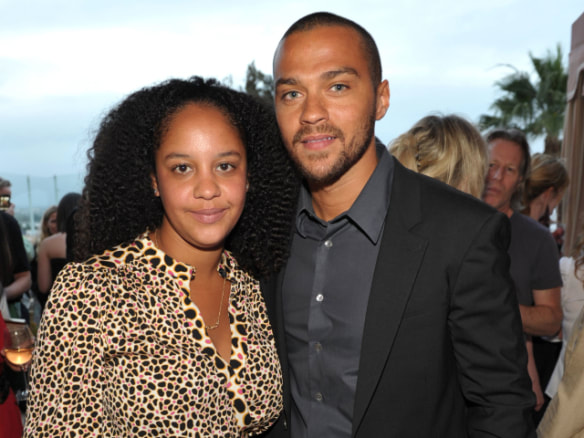
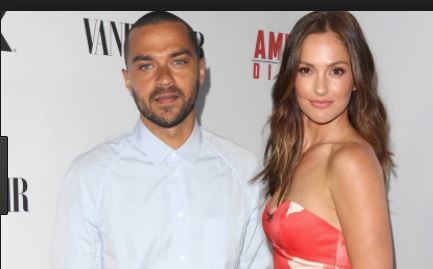
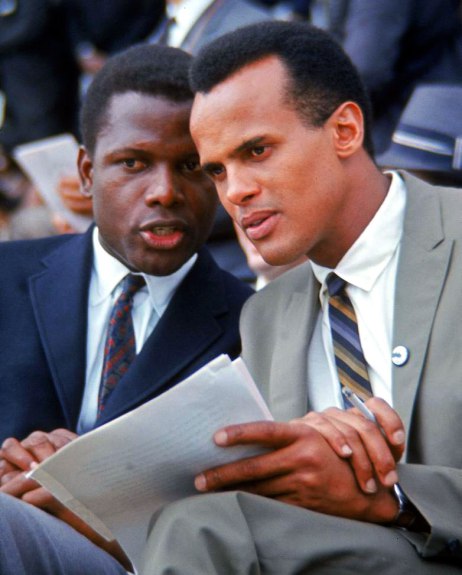
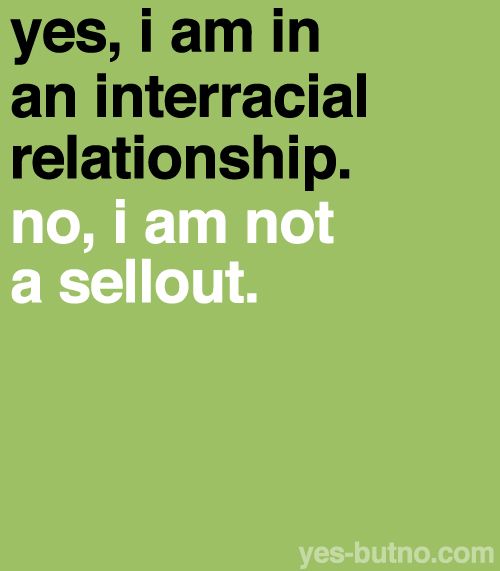
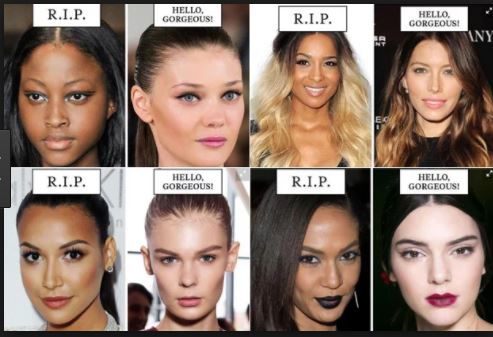
 RSS Feed
RSS Feed